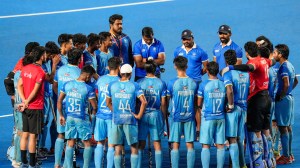Activists cry foul as UP Information Commission drafts regulations
The UP State Information Commission has formulated some regulations for the implementation of the Right to Information Act, which, activists allege, are contrary to the spirit of the law enacted to facilitate availability of information.

The UP State Information Commission has formulated some regulations for the implementation of the Right to Information Act, which, activists allege, are contrary to the spirit of the law enacted to facilitate availability of information.
“The regulations of the state commission are the copy of the Central Information Commission (CIC) rules and regulations, which reject 60 per cent cases on technical grounds,” said Arvind Kejriwal, who was actively involved in the formation of the RTI Act.
The commission has not sought public opinion while formulating the regulations. But since the matter was posted on the commission website, it has attracted suggestions from various quarters.
Chief Information Commissioner Wajahat Habibullah clarified that the states have the authority to form regulations for the implementation of the Act in its true spirit. But it is better to seek public opinion while drafting the regulations, he added.
The activists from across the nation have now come together to oppose the regulations and have demanded several amendments.
Social worker and RTI activist Urvashi Sharma from RTI Mahila Manch has raised the issue by writing an open letter to the officiating state Chief Information Commissioner, Gyanendra Sharma. Copies of the letter have been sent to the President, besides the
Governor and the Chief Minster of Uttar Pradesh.
Urvashi says the rules are meant to make the process so complex that it acts as a deterrent, and forces the applicant to seek legal help.
“The law was passed after a people’s movement. It was drafted by civil societies. Its rules should also be made through public discussions,” she said.
Gyanendra Sharma said the regulations were basically for the functioning of the commission, but still he got them posted at the commission website.
“We are going through all suggestions and will incorporate whatever is feasible before implementing them,” said Sharma. He however, denied that the regulations had been sent to the government for its approval.
“The question of sending the regulations to government does not arise as they are an internal matter.”
Some of the points in the SIC regulations and the counterpoints of the activists:
* Rule 6 mentions a flexible two to four-week summer break and a two-week winter break. Activists say: This lacks clarity. Besides, this is unjustified when over 10,000 cases are pending with the SIC.
* Rule 8(1) (a) makes it mandatory for the appellant/complainant to furnish his personal details, apart from name and address.
Activists say: Personal details are not specified.
* Rule 11(5) (b) says that the registrar can cancel cases that are not maintainable due to “some” reasons.
Activists say: The word “some” is ambiguous.
* Rule 12 dealing with filing of counter by the public information officer gives a bunch of relaxations to the PIO as it says, “after getting the complaint/appeal, the PIO shall submit his counter (if there is any) along with related documents.
Activists say: Why the words “if there is any” when according to Rule 10, the complainant/appellant has to send a copy of complaint/appeal to the PIO and compulsorily furnish attested copies to the SIC while filing the complaint/appeal
* Rule 12 says during hearing in commission, “generally” the PIO shall present his view.
Activists say: Why is this not mandatory?
* Rule 15(5) says the commission shall pass order on the merits of the case.
Activists say: The term “speaking order” has not been used, which is mandatory as per Section 4(1)d of the Act.
- 01
- 02
- 03
- 04
- 05































